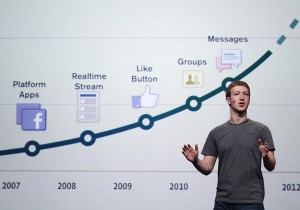To put that number in perspective (assuming it's reasonably accurate): if Facebook were a country, it'd have the 59th highest gross domestic product (GDP) in the world, putting it between Vietnam and Morocco!
Why will this make some Facebook staffers very rich?
Similar to what happens in many start-up companies, Facebook offered some of its first wave of employees a small percentage of ownership (shares) in the company in lieu of big salaries (which it couldn't afford to pay at that point). The idea rests on the hope that some day the business becomes really successful and goes public, and those employees then get to cash in.
And that's exactly what seems to be on the verge of happening. Big time..
As long as Facebook remains a private company, those stock options aren't worth diddly because the company has no stock market value. But with its likely very lucrative IPO in sight, that $100 billion price tag suddenly becomes relevant. And all of a sudden, those employees who for years have been sitting on seemingly worthless stock have really big smiles on their faces.
The Breakdown
Imagine if you were one of those early Facebook workers and were given, say, 1% ownership in the company? If the company actually ends up being worth $100 billion, you'd suddenly be sitting on $1 billion in shares. Not too shabby!
Now to be clear, not all Facebook employees will get super-rich. A majority of the company's roughly 3,000 staff don't have hefty stock options built into their contracts. But, a lot of them do! It's been widely estimated that Facebook's IPO will create about 1,000 millionaires and a dozen billionaires among its employees and early investors ... pretty much overnight!
So, for instance, take Mike Schroepfer, Facebook's vice president of engineering. He owns a little over 2 million shares in the company, which sounds like a lot, but it's only about .1 percent of the total. Now assuming the company is actually worth between $75 and $100 billion (let's split the difference and call it $87.5 billion), that'd make Schroepfer's holdings worth about $98 million! (source: Business Insider). And then you have Zuckerberg himself - the majority shareholder, who owns almost 30 percent of the company. What does that amount to in stock? Try $25 billion.
The world's richest graffiti artist?
Remember that not all of these people are actually Facebook employees. Some of them are early investors in the company (those guys who took the initial risk and gave Zuckerberg and his pals a bunch of start-up funding). And then there are a handful of folks with some random, quirky connection to Facebook and now stand to cash in big. Take, for instance, graffiti artist David Choe who was hired in 2005 to paint some wall murals in Facebook’s first headquarters. Back then, though, the company hadn't made much money, so offered to pay Choe in stock instead of cash. He did the job, got some stock, and now stands to make about $200 million. So much for the starving artist.
Does California stand to benefit?
Facebook’s headquarters are located in Palo Alto, and most of the overnight millionaire/billionaire employees live
in state. As a company based in California, Facebook will pay taxes to the state, and as residents, it’s employees will pay a state income tax, which is proportionate to what they make.
For cash-strapped California, this is potentially really good news. The state's Legislative Analyst’s Office predicts that California could receive as much as $2.45 billion in taxes from Facebook over the next 3 years after the company goes public.
Watch Facebook IPO: Putting a Value on Social Media Giant on PBS. See more from PBS NewsHour.
